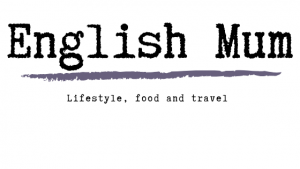I have a couple of weights and measures sheets at the front of my recipe file listing all sorts of conversions for converting cups to grams, gas mark temperatures to degrees C and F, plus other useful bits and pieces. I thought it would be useful to list them all here for easy reference. Feel free to pinch this. Although I can’t guarantee absolute accuracy, these are my best and most well-used estimates.
Oven temperatures (reduce slightly for fan ovens - please note these are rounded for ease of use)
Gas mark 1/4 = 110C (225F)
Gas mark 1/2 = 120C (250F)
Gas mark 1 = 140C (275F)
Gas mark 2 = 150C (300F)
Gas mark 3 = 160-170C - bit contentious this one - differs according to where you look (325F)
Gas mark 4= 180C (350F)
Gas mark 5 = 190C (375F)
Gas mark 6 = 200C (400F)
Gas mark 7 = 220C (425F)
Gas mark 8 = 230C (450F)
Gas mark 9 = 240 - 250C (475F)
Gas mark 10 = 260C (500F)
Spoon measurements (always measure level, not heaped)
1 tsp (teaspoon) = 5ml
1 dsp (dessert spoon) = 10ml
1 tbsp (tablespoon - remember this is not a serving spoon) = 15ml
American cup sizes
Note: this system works in volume, rather than in weight, so obviously a cup of butter will weigh considerably more than a cup of flour - take care when converting! It’s worth investing is a set of cups so you don’t have to. Also, US cups differ from their Australian and South African equivalents, just to confuse you a bit more.
Basically, as long as you’re not mixing and matching your measuring method in a recipe, you should be fine - and, let’s face it, a couple of grams either way won’t ruin a recipe.
1 cup = 250ml volume
1/2 cup = 125ml volume
1/3 cup = 80ml volume
1/4 cup = 60ml volume
So for the most common ingredients:
Butter
The ubiquitous Ina Garten measures her ‘budderrr’ in sticks. US sticks are 4 oz or about 115g. 1 stick is half a cup, so:
1/2 cup butter = 115g
1/3 cup butter - 75g
1 cup butter = 225g (8oz)
Flour
Another contentious one this - you’ll find 1 cup listed as anywhere from 100g to 150g on the internet - it all depends whether it’s sifted… whether it’s a damp day… how tightly it’s packed… blah blah), but for me, the middle ground is:
1 cup flour = 130g
1 cup flour tightly packed = 150g
Sugar
1 cup caster/granulated = 225g
1 cup brown sugar = 175g
Liquids
2 fl oz = 60ml
4 fl oz = 120ml
5 fl oz = 150ml
6 fl oz = 180ml
8 fl oz = 250ml
16 fl oz = 500ml
32 fl 0z - 1 litre
1 pint = 20 fl oz or 570ml
American pint = 16 fl oz
Weights
½ oz = 10g
¾ oz = 20g
1 oz = 25g
1½ oz = 40g
2 oz = 50g
2½ oz = 60g
3 oz = 75g
4 oz = 110g
4½ oz =125g
5 oz = 150g
6 oz = 175g
7 oz = 200g
8 oz = 225g
9 oz = 250g
10 oz = 275g
12 oz = 350g
1 lb = 450g
1 lb 8 oz = 700g
2 lb = 900g
3 lb = 1.35kg
Miscellaneous Randomness
1 lemon (average size) should give approximately 3 tbsp juice.
Buttermilk: squeeze the juice of half a lemon into normal milk, stir and voila! Buttermilk.
Cooking rice: brilliant article here: http://www.guardian.co.uk/lifeandstyle/wordofmouth/2011/feb/17/how-to-cook-perfect-rice
All my recipes use large, free range eggs and free range chicken.
Good advice from lovely friends:
http://cookinginmammyskitchen.com/2011/07/sterilising-jam-jars/


